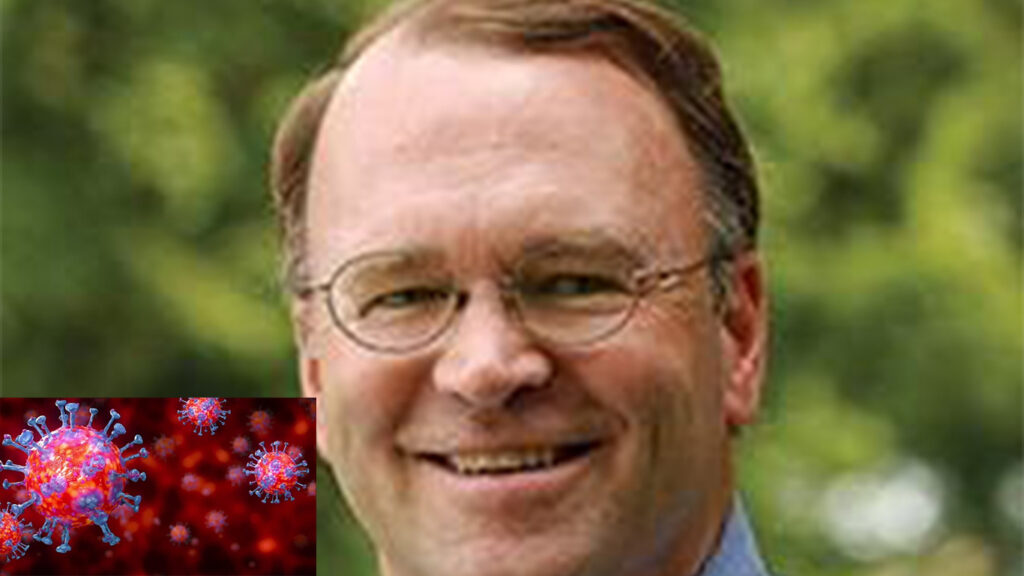We must not view COVID-19 simply in a medical context.
By Mac Regan, author of The 2020 American Revolution: 20/20 Decision Support for Voters
Will COVID-19 unite or divide our society? America’s social capital, that is, how individuals and groups work together (or don’t) to create (or inhibit) cooperation, will have much to say about how we survive today and build a better tomorrow. How will we live together, seek truth and sort through bias, communicate and find common ground, balance individual and societal priorities, and take responsibility for ourselves and others?
We must use COVID-19 as an instrument of change.
Social capital is an asset when it builds consensus, trust, and reciprocity. It is a liability when it creates distrust, a lack of cooperation, and division. Do our relationships create windows through which we can see, better understand, and empathize with the needs of those outside our own social networks? Or, do we confine our relationships to those who share a common identity?
Large inequalities in wealth and income, community make-up, and education access, isolate citizens from one another and undermine the interactions and shared purpose needed for social cohesion. Equally disturbing, our political system gives disproportionate voice to the wealthy and powerful, fails to offer hope to large numbers in despair, and skews opportunity in favor of the well connected. A crisis like COVID-19 calls out these failings. We see it in the access to testing and treatments more readily available to celebrities, elected representatives, and the wealthy than they are to the common citizen.
The weaponization of social media has overwhelmed America’s traditional media, journalistic, and education systems, making it difficult to seek out truth and facts, apply critical and objective thinking to differing points of view, and overcome information bias. Citizen engagement, awareness, and ability to find truth vaccinates against those who would divide or manipulate us.
What can all of us do right now to cut through the complexity, fake news, and divisiveness in order to enhance social capital in troubled times?
1. Avoid characterizations such as liberal, conservative, nationalist, Democrat, Republican, Christian, agnostic, etc. Recognize that no one group or ideology has all the right answers.
2. Commit to truth. No truth, no trust. Verify, don’t blindly trust, sources using well-regarded fact checkers and exposure to a range of media sources. Avoid sources at the extremes. Hold yourself, others, and politicians accountable to truth by calling out lies and misinformation.
3. Recognize that information bias starts within. We all suffer from confirmation bias based on our upbringing, culture, race/ethnicity, religious beliefs, levels of education, experiences, etc. Self-awareness of existing confirmation biases is required to recognize, evaluate, and balance varying opinions.
4. Support candidates who offer specific plans and structural changes to increase social capital’s ability to help citizens find agreement. These include enhanced regulation and accountability of mainstream media and social media; additions to primary and secondary education curricula that improve students’ ability to critically think about the needs and preferences of an increasingly diverse society; programs to enhance social integration in schools, communities, and workplaces; and regular community and national level publicly funded forums that promote discourse, debate, and solutions-seeking across all socio-economic groups. Advocate additional legal and criminal protections against hate speech, groups that promote domestic terrorism, and foreign governments that attempt to interfere with American democracy.
5. Increase shared fate across diverse communities in terms of education access, housing access, and socially diverse networking that will promote actions to create broader understanding and social cohesion. Use military, public service, and employment practices to better connect diverse groups of citizens and get them to work together. Create regular, national dialogue sessions where cross sections of citizens are paid to study, debate, develop, and communicate (to the media and elected representatives) solutions to major issues.
The American system of constitutional values, democracy, and capitalism depends on our ability to balance and optimize six capital assets (political, human, social, natural/environmental, financial, and built/infrastructure). Improving social capital will not solve all our problems. But social capital dysfunction limits our ability to see problems, debate and respect alternatives, and trust potential compromise solutions that look beyond individual winners and losers. This is a unique and stressful time in American history. It is also an opportunity to increase social capital. It’s not about you. It’s about us.

